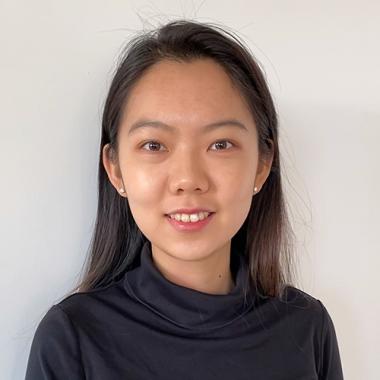
Master of Architecture (MArch), RIBA Part 2 – 2020
Studying at Westminster was an exceptional experience. If you are considering this course or studying at the University, I would suggest taking advantage of the learning opportunities, resources, trips and platforms that the University offers. Utilise the facilities and immerse yourself in the environment as it is a unique University experience. More importantly, enjoy being a student in London and get the most out of this city!
Why did you choose the University of Westminster?
Having already studied and lived in London for three years during my architecture undergraduate degree (Part I), I was keen to come back to London to complete my Part II. The architectural department at the University of Westminster is located in the heart of London, which meant I would be at the centre of many galleries, exhibitions and other arts and leisure events that this city has to offer. When I was looking at the options of universities in London, the learning opportunities Westminster offered with my course really stood out to me. That, as well as its diversity as a University, were the deciding factors for me.
How has your experience been studying in London?
London is a city that never stops being exciting. Studying as a university student in London not only offers excellent educational and learning opportunities such as art exhibitions, museums and galleries, lecture talks given by architects and designers in the industry, but you also get to experience endless leisure activities - from theatres and sport events to amazing restaurants and cafes. The culture of a Master’s course means that everyone has different backgrounds and experiences, which is a great way to meet new people and learn from each other.
What have you particularly enjoyed about your course?
The Master of Architecture course at the University of Westminster is structured in a way that, in addition to the main design studio projects that you would have at the heart of an architectural degree, it also offers a great selection of other modules that allow you to develop new skills in a variety of areas. For example, I had the opportunity to learn and work with robotic arms in the Digital Design module and get a deeper understanding of the programme operating it. I also became a ‘PAL’, which is a 'buddy' scheme for MArch students to assist the design tutors for undergraduate students. This was one of the other main appeals of this course to me, as I was able to provide support and share my experiences. The design studios of this course are run in a mixed-years system, and you have the opportunity to stay with your tutor for two years if you want to, which I really appreciated.
How have you found academic support as part of your studies?
We have personal tutors alongside our design tutors, who are really helpful, especially at the start of Covid when I was uncertain of the changes to my working environment and the remote way of teaching. Academically, I found the tutor-student relationship was much more mature, as you spend most of your time researching and exploring your subjects in detail so that you can have real in-depth conversations with your tutors. Within the design studio environment, you also get support from your peers and work together on projects.
Are there any stand-out facilities associated with your course?
The Fabrication Lab at the Marylebone campus is excellent, it is a digital workshop that encourages students to get hands-on with materials, to experiment and create. There is a wide variety of machinery for digital fabrication and at the start of the course all students are enrolled for lab use. In the basement of the campus there is the gallery space - Ambika P3, where exhibitions, talks and events are hosted, which you could attend at great convenience during a studio day. There is also a fantastic library resource with a selection of useful books to assist with learning, which was especially useful to me when writing my dissertation.
Tell us about any activities that you have undertaken outside of your course
Field study trips are - some would say - the best part of the course. The study trip destinations were chosen by the tutors and organised within the design studio group, and are an insightful and inspiring part of the course. In my first year of MArch we visited Hong Kong, Shenzhen and Guangzhou, and had the opportunity to see the astonishing atmosphere, history, communities and visit places from Zaha Hadid's Guangzhou Opera House to the 'forgotten urban villages'. In my second year we went to Brussels, Rotterdam and Duisburg. We saw some modern projects, settlements and urban farms, which was inspiring in producing our design project back at the University.
What would your advice be to someone considering studying at Westminster?
Studying at Westminster was an exceptional experience. If you are considering this course or studying at the University, I would suggest taking advantage of the learning opportunities, resources, trips and platforms that the University offers. Utilise the facilities and immerse yourself in the environment as it is a unique University experience. More importantly, enjoy being a student in London and get the most out of this city!
What was the most surprising or unexpected aspect of your Westminster experience?
For me it was the PALs scheme at the University, which allowed me to develop interpersonal and professional skills while studying a full time course.